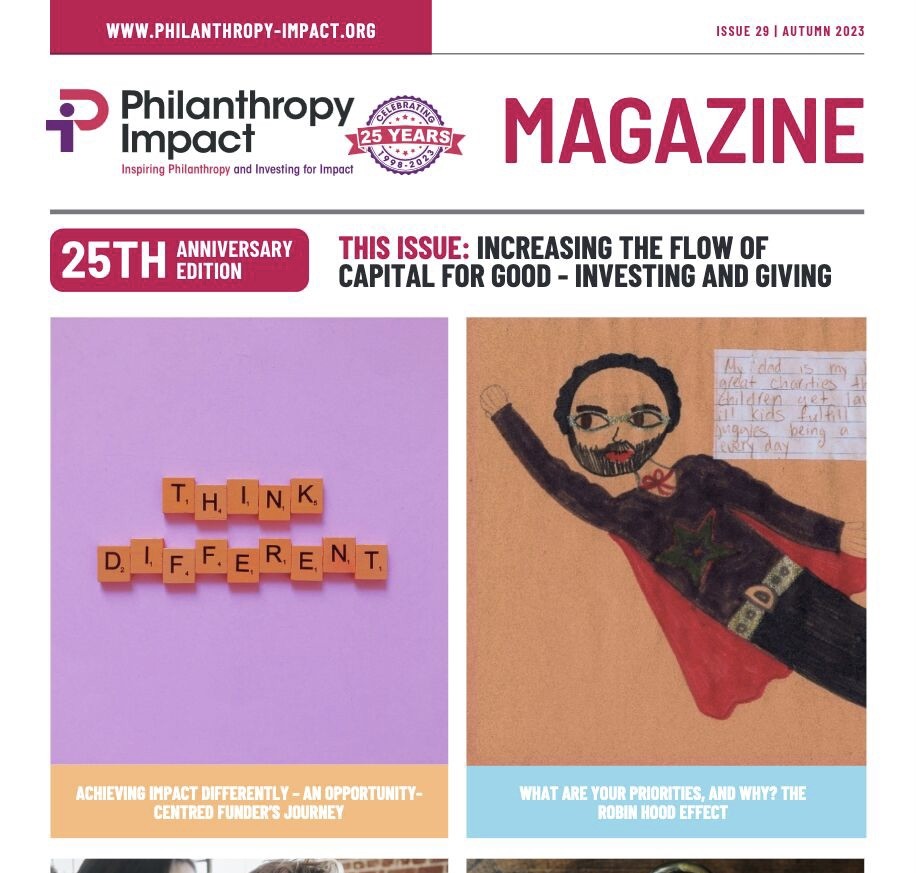Phyla featured in Philanthropy Impact

Phyla featured in Philanthropy Impact’s 25th Anniversary Edition
December 2023
Anjou Dargar shares her insights on energy, food security and the catalytic power of blended finance to regenerate our ecosystems in the 25th Anniversary Edition of Philanthropy Impact Magazine: Increasing the Flow of Capital for Good – Investing and Giving.
Expounding on the work Phyla is doing to address global systemic challenges, Anjou shows how sustainable food production can address ecological degradation, climate change, food security and corresponding socioeconomic issues, further discussing the new incentive structures necessary to scale these systems:
“Energy is the ultimate currency of life. Every living thing relies on the transfer and transformation of energy, the primary source of which is the one thing that connects us all — the sun. Before the modern era, most of the energy we used came directly from food and this tied us closely to the earth. But over the past century, the ability to harness, store and commodify concentrated sunlight (i.e. fossil fuels) to use for energy has essentially disconnected us from the natural world, the effects of which we are starting to see and experience today.
Our global economic systems have largely been decoupled from the planet’s ecological systems. Economies have been built on the premise that the products and services derived from the Earth’s ecosystems are more valuable than the actual ecosystems from which they are sourced. This extractive model has led to intensive mining and industrial farming resulting in depleted soils, which in many instances are now unable to withstand life. The UN Convention to Combat Desertification (UNCCD) recently released data showing that the world lost at least 100 million hectares of fertile land annually between 2015-19.
Global food systems, in particular, are increasingly vulnerable to production shocks and productive agricultural land has become a prized asset. While large-scale industrial farming has enabled tremendous efficiencies in food production …..”
To read the full article, please see pages 16-18 of Philanthropy Impact’s 2023 autumn edition.
